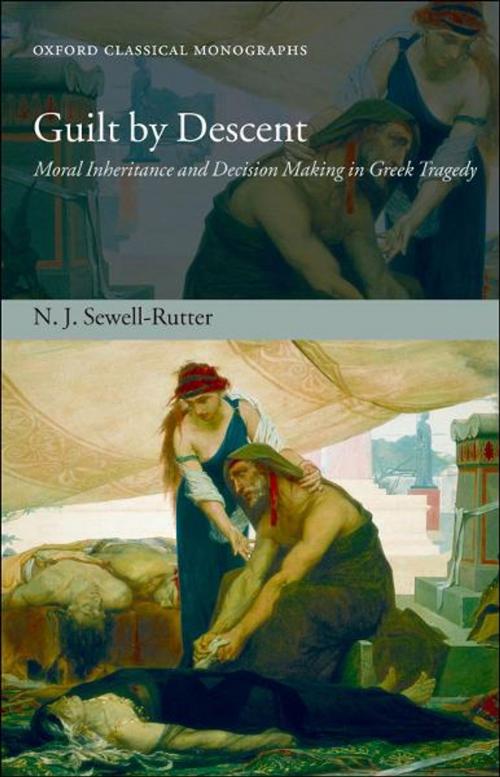Guilt by Descent
Moral Inheritance and Decision Making in Greek Tragedy
Nonfiction, History, Ancient History, Greece, Fiction & Literature, Literary Theory & Criticism| Author: | N. J. Sewell-Rutter | ISBN: | 9780191615481 |
| Publisher: | OUP Oxford | Publication: | July 29, 2010 |
| Imprint: | OUP Oxford | Language: | English |
| Author: | N. J. Sewell-Rutter |
| ISBN: | 9780191615481 |
| Publisher: | OUP Oxford |
| Publication: | July 29, 2010 |
| Imprint: | OUP Oxford |
| Language: | English |
Blighted and accursed families are an inescapable feature of Greek tragedy, and many scholars have treated questions of inherited guilt, curses, and divine causation. N.J. Sewell-Rutter gives these familiar issues a fresh appraisal, arguing that tragedy is a medium that fuses the conceptual with the provoking and exciting of emotion, neither of which can be ignored if the texts are to be fully understood. He pays particular attention to Aeschylus' Seven against Thebes and the Phoenician Women of Euripides, both of which dramatize the sorrows of the later generations of the House of Oedipus, but in very different, and perhaps complementary, ways. All Greek quotations are translated, making his study thoroughly accessible to the non-specialist reader.
Blighted and accursed families are an inescapable feature of Greek tragedy, and many scholars have treated questions of inherited guilt, curses, and divine causation. N.J. Sewell-Rutter gives these familiar issues a fresh appraisal, arguing that tragedy is a medium that fuses the conceptual with the provoking and exciting of emotion, neither of which can be ignored if the texts are to be fully understood. He pays particular attention to Aeschylus' Seven against Thebes and the Phoenician Women of Euripides, both of which dramatize the sorrows of the later generations of the House of Oedipus, but in very different, and perhaps complementary, ways. All Greek quotations are translated, making his study thoroughly accessible to the non-specialist reader.















